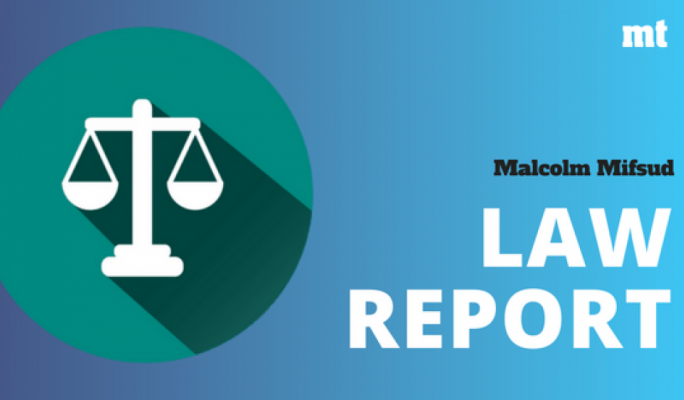By Malcolm Mifsud
Copyright maltatoday

A contract between parties is valid at law, if the fact mentioned in it may be verified by the parties. This was held in a judgment delivered on 23 September 2025 by the First Hall of the Civil Courts presided by Judge Audrey Demicoli. The case was Allison Management Limited vs Nrgy Concepts Limited.
The plaintiff company explained that both parties had entered into an agreement, where the defendant company sold its business. The company had as its brand Oktoberfest Malta, which was registered. However, the certificate of the trademark was not attached to the agreement. The certificate of registration, passed on in April 2023, showed that the defendant company did not own the trademark of Oktoberfest Malta but all it had was an application for registration.
The agreement referred to the certificate of registration and without this the plaintiff company was not interested in purchasing the business. Subsequently, the plaintiff company accused the defendant company of being in bad faith since it exaggerated its claims to ownership of the trademark. The plaintiff company asked the court to declare that its consent was vitiated because of an error and that it was affected by fraud. It asked that the agreement be rescinded and be refunded €2,360 which was the price for the trademark.
The defendant claimed that the plaintiff confused the terms trademark and brand. Oktoberfest Malta is a brand, which brand was registered as a trademark. A certificate was issued. Nowhere did it say that it has the exclusive use of the words Oktoberfest and Malta.
The court analysed the facts in terms of the Trademarks Act. In 2001, ITS Limited had applied to register the word Oktoberfest as a trademark, however, this was rejected. The defendant company tried again in 2021, but added ‘Malta’ to it. This application was withdrawn. The application was filed again with a different design. The trademark was registered in 2022, however the Department of Commerce held that the company did not have exclusive use of the words Oktoberfest and Malta. The court held that in Germany there were various attempts to register Oktoberfest since 2016. However, nobody has the exclusive right to use that word.
With this in mind, the court analysed whether the agreement was null and void. From the agreement the court could not find any condition that the defendant was transferring the exclusive use of the trademark Oktoberfest.
Article 976(1) of the Civil Code reads: “(1) An error of fact shall not void the contract unless it affects the substance itself of the thing which is the subject-matter of the agreement.”
The court also quoted from Carmelo sive Charles Foca vs Franco Borg et decided on 5 May 2021. Here the court held that for the error to affect the substance, that error must be determining, subjective and unilateral. Also, fraud cannot be claimed if the facts did not cause any issues. A defect of consent is not excusable if it is a result of negligence. It is excusable when it is easily verifiable.
The court in this case held that the registration of the word Oktoberfest could have been easily verified at the European Union Intellectual Property Office and/or the Malta Trademark Register. Indeed, the plaintiff had downloaded the certificate when it filed this case.
As to the claim that the agreement was null and void due to fraud, the court explained that the term ‘grave’ meant to be when an ordinary person does not notice the fraud. In this case, the plaintiff could have easily verified whether the trademark was registered or not.
The court rejected the plaintiff company’s claims and upheld the defendant’s statement of defence.